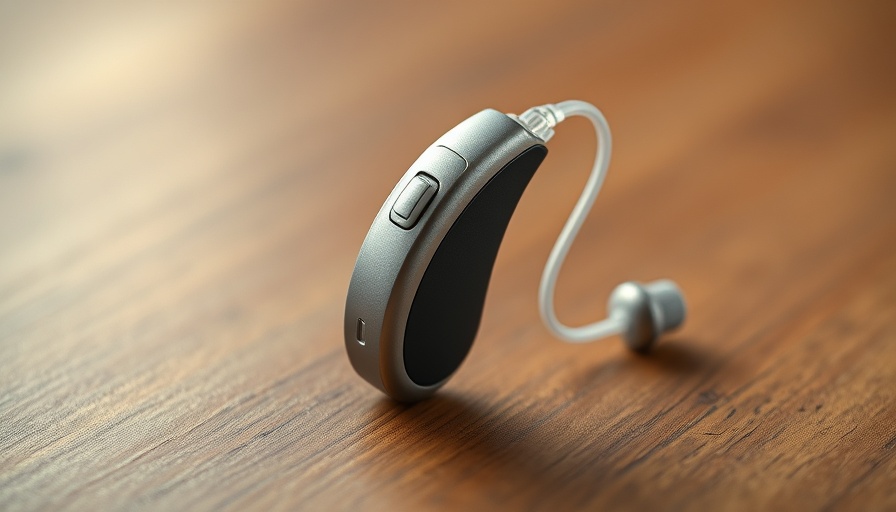
Unlocking the Hidden Advantages of Hearing Aids
Hearing aids have long been recognized primarily for their role in enhancing auditory experiences, yet their benefits stretch far beyond the ability to hear clearly. For many, the notion of wearing hearing aids comes with cultural misconceptions that may deter them from seeking this essential support. Research reveals that only 1 in 10 people needing a hearing aid actually use one. As we delve deeper, we uncover not only the medical advantages but also the innovative technological enhancements that these devices offer, particularly relevant to adults in Maryland investing in their health and wellness.
Prolonged Life: A Surprising Benefit
A groundbreaking study from Keck Medicine at the University of Southern California reveals a strong correlation between the use of hearing aids and longevity. Participants with hearing loss who utilized hearing aids at least once a week reported a 24% lower mortality risk compared to non-users. While the precise reasons remain unclear, improved mental health from enhanced communication is hypothesized to indulge a broader impact on physical health, encouraging those who might need hearing aids to reconsider their options.
Minimizing Fall Risks: A Vital Safety Advantage
With falls being a leading cause of injury among older adults, the link between hearing loss and increased fall risk cannot be overlooked. A study published in the Journal of the American Geriatrics Society demonstrated that hearing aid users were 50% less likely to fall than their non-using counterparts. Moreover, for those wearing their hearing aids for at least four hours a day, the risk was reduced by an astonishing 65%. This data offers healing hope, encouraging Maryland residents to embrace hearing aids as essential safety devices.
Cognitive Health: Reducing Dementia Risks
Further evidence emerges from studies conducted at the University of Michigan, suggesting that hearing aid users have an 18% lower risk of developing dementia within three years of a hearing loss diagnosis. This adds a substantial layer to the argument for accessibility to quality hearing care. Engaging with community resources and support networks in Maryland could prove vital for those grappling with hearing loss.
Emotional Well-being: The Connection to Mental Health
Hearing loss often leads to social isolation, increasing the likelihood of depression and anxiety. The University of Michigan researchers found that hearing aid wearers had a marked 11% lower risk of developing these mental health challenges, illustrating the profound impact that improved hearing can have on emotional well-being. Furthermore, studies suggest that symptoms of depression can reduce within three months of initiating hearing aid use, indicating a compelling opportunity for individuals feeling disconnected or distressed.
Modern Innovations: Health Tracking and Connectivity
Shifting gears into the modern technological landscape, hearing aids have evolved into multifunctional devices that can monitor various aspects of health. Some models are equipped with biometric sensors that track activity levels and heart rates, which are particularly beneficial for users intent on managing their overall wellness. Additionally, the advent of wireless connectivity allows for seamless interactions with televisions, radios, and even computers, enriching the auditory experience.
Conclusion: Prioritizing Hearing Health
The insights gathered illustrate how hearing aids provide more than just improved sound; they enhance life quality through safety, cognitive health, emotional well-being, and modern technological advancements. As we encourage the adoption of hearing aids in our Maryland communities, it becomes imperative to foster awareness and remove stigmas surrounding their use. For those still hesitant about wearing hearing aids, consider the numerous positive correlations already highlighted. Reconnecting with the world starts with sound—take the leap into improved health and wellness today.
If you or someone you know is considering hearing aids, exploring available resources and professional advice can make a significant difference. Reach out to local health providers to learn more and take the first step toward enhancing quality of life!
 Add Row
Add Row 
 Add Element
Add Element 


Write A Comment